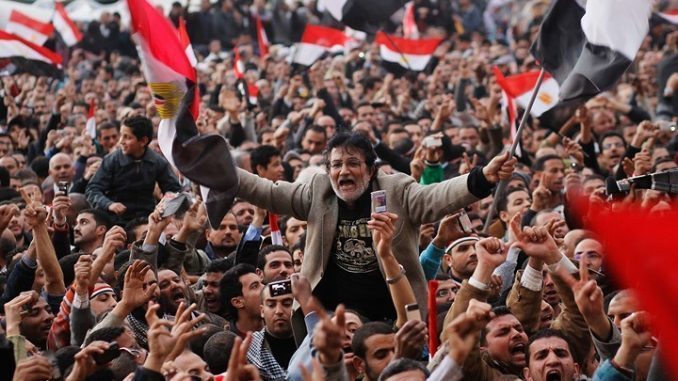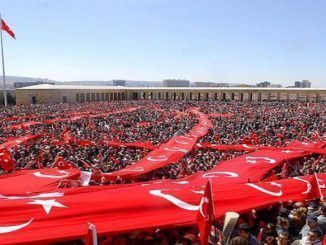
The Batel (Void) Campaign has called, in a statement, on all Egyptians at home and abroad to demonstrate on the ninth anniversary of the January 25 revolution
The popular campaign called on Egyptians to take to the streets next January 25, 2020 to highlight their adherence to the spirit of the revolution and confirm that the change that started on January 25, 2011 is coming to remove the coup leader Abdel Fattah al-Sisi and establish the rules of the Egyptian state of justice. , Freedom and dignity for all Egyptians without any difference or condition.
The Batel (Void) Campaign, which in April 2019 organized a petition against constitutional amendments which allow Sisi to stay in power until 2030, called, in a statement on Saturday, 18 January, 2020, “for the immediate release of all detainees and ending the suffering of more than 60,000 Egyptian prisoners, men, women and children, imprisoned because they had sought to achieve the dream of Egyptians in dignity and freedom,” stressing that “the January revolution will win, even after a while.”
Batel Campaign said that it “addresses the free young officers of the Egyptian army and police who reject corruption and injustice that has rattled the body of the homeland”, and sends them a message that they are part of the success of the intended change, and the achievement of Egypt’s dream of prevalence of justice under the protection of the army.
However, the regime often uses major political events as an opportunity to remind the country of its security and anti-terror narrative, which it constantly pushes to justify severe repression in the country.
As the anniversary of the January 25 Revolution approaches, we are reminded just how many peaceful protesters have been jailed and charged in Egypt for membership in a terror group and for funding or aiding terrorists, including many from the recent September protests.
Last weak, the Egyptian Armed Forces issued an official statement, that the Air Force reconnaissance exercises Qader 2020 “provided air assistance in drills for targeting terrorist outposts in all directions.”
Military displays of strength are a diversion tactic, a spectacle for Egyptians to look at rather than focus on all the downfalls of the current regime, which has imprisoned 60,000 prisoners, several of whom have died or who are dying from the cold this winter.
This drill is also a warning of the regime’s strength, and what it will do to people who come out onto the street to challenge Al-Sisi’s rule if they are planning to do so on 25 January.
On the 2015 anniversary of the revolution, at least 17 protesters were killed when security forces fired on them, including the activist Shaimaa Al-Sabbagh who carried flowers to Tahrir before she was shot. Just in case they didn’t get the message, armoured personnel carriers rolled into the streets downtown, a warning to anyone else who wanted to voice their opinion.
There is no more painful reminder of the army’s strength against civilians than the 2013 Rabaa massacre against pro-democracy protesters in the square when army tanks rolled over the sit-in, snipers shot at demonstrators and set fire to tents. Some 1,000 people were killed that day and hundreds more injured.
Two years ago, just one month before the 2018 presidential elections, Operation Sinai was launched “to combat terrorism”.
In the first three months of the operation, 3,000 homes were flattened along the border with Gaza. The army continues to extrajudicially kill civilians, forcibly disappear children and burn and demolish the houses of people who speak out.
At the time the operation began, the president was desperately looking for ways to divert the electorate’s attention away from the dire economic situation in the country and drum up support for his own rule, so he pushed security to the top of the agenda.
But it is not the army’s strength which will secure the nation – that can only happen when it respects the rule of law.



